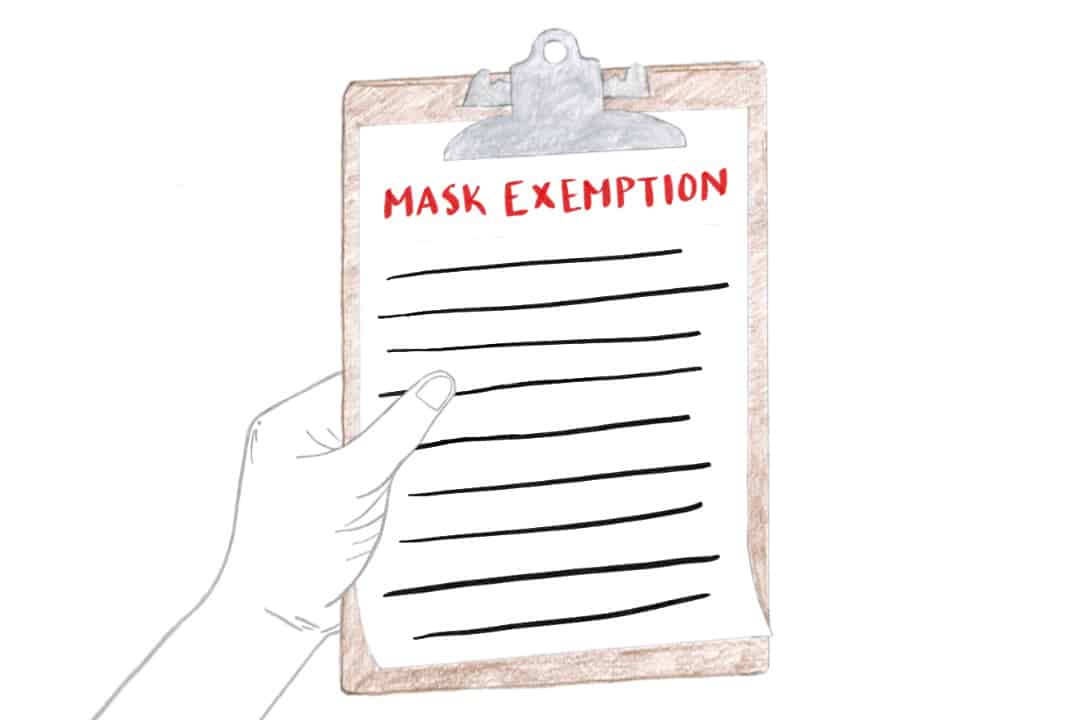In July, U of T announced that all students living in residence were required to be fully vaccinated against COVID-19 with at least one booster shot. Despite some backlash to the mandate, less than one per cent of students in residence at U of T requested a vaccine exemption.
The university granted exemptions from the vaccine only for medical reasons. The Ontario Human Rights Commission’s Human Rights Code bans discrimination based on creed or religion and determined that “personal preferences or singular beliefs do not amount to a creed for the purposes of the Code.”
Dr. Anna Banerji, an associate professor at the Dalla Lana School of Public Health who specializes in communicable diseases and public health, told The Varsity that consistency between institutions or within the university community would help reduce the impact of the COVID-19 wave expected this fall.
Students receiving the vaccine
In Canada, people between the ages of 18 and 29 have the lowest rate of third dose uptake among any adult age group. According to Banerji, it is important that students receive the vaccine, especially given the predictions that another wave of COVID-19 is on the horizon. “It’s not just the students that are young and healthy that are getting it, it’s bringing it home to their family members, it’s bringing it home to other people on the subway,” Banerji said.
Even for students, COVID-19 can present risks. “I’ve seen too many young people, teenagers, get long COVID, and then they end up suffering for a long time,” said Banerji.
A UK study found that one in nine 17–24 year olds experienced lingering symptoms 12 weeks after testing positive for COVID-19. Such symptoms can include tiredness, shortness of breath, and difficulty concentrating.
Banerji also recommended that people receive the new bivalent booster vaccine, which was manufactured to protect against multiple strains of the virus, including the Omicron strain. Based on measures of participants’ immune responses, the bivalent booster is slightly more effective than other boosters.
“I think that vaccination in Canada has saved thousands of thousands of lives,” said Banerji. “Even though the virus is changing, it’s really the cornerstone of prevention.”
Health Canada authorized a bivalent booster created by Moderna in early September, and it is now available to all Ontarians age 18 and up.
However, Banerji acknowledged that there is only so much U of T can do on its own to combat COVID-19. “It’s hard to control [the virus] in a university when the government basically said they’re not doing anything to control it anymore in the province.”
The state of vaccination at U of T
A U of T spokesperson wrote in an email to The Varsity that U of T decided to implement a vaccine mandate on campus because “living in residence creates a unique set of conditions that require special precautions.” However, some students have not received their booster because of various factors, including some students who recently had COVID-19 or weren’t due to receive the shot based on the recommended vaccination schedule.
Although the university requires that those living in residence receive the COVID-19 vaccine, it doesn’t require students or faculty who live off campus to receive the vaccine before coming to campus. Only around eight per cent of U of T students are subject to the university’s vaccine mandate.
U of T no longer collects data on vaccination uptake among the remainder of students or faculty. According to statistics from October 2021, over 76,000 members of the U of T community had been vaccinated against COVID-19. However, according to the U of T spokesperson, “all students are strongly encouraged to stay up to date with COVID-19 vaccinations,” and a vaccine requirement for all students “could be reinstated on short notice if public health conditions or guidance changes.”


